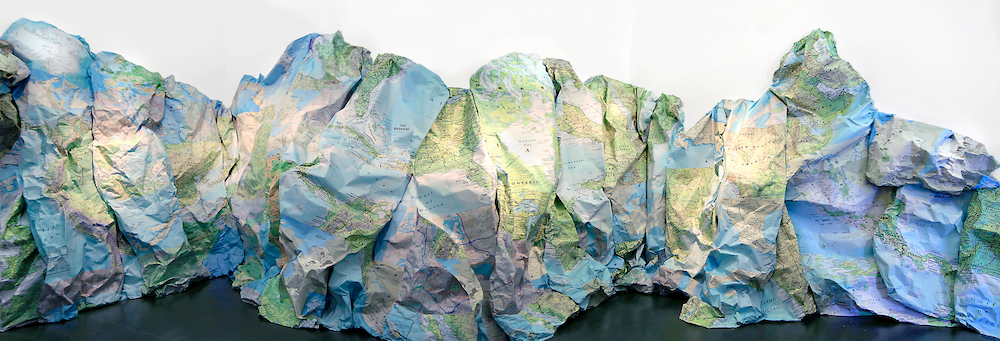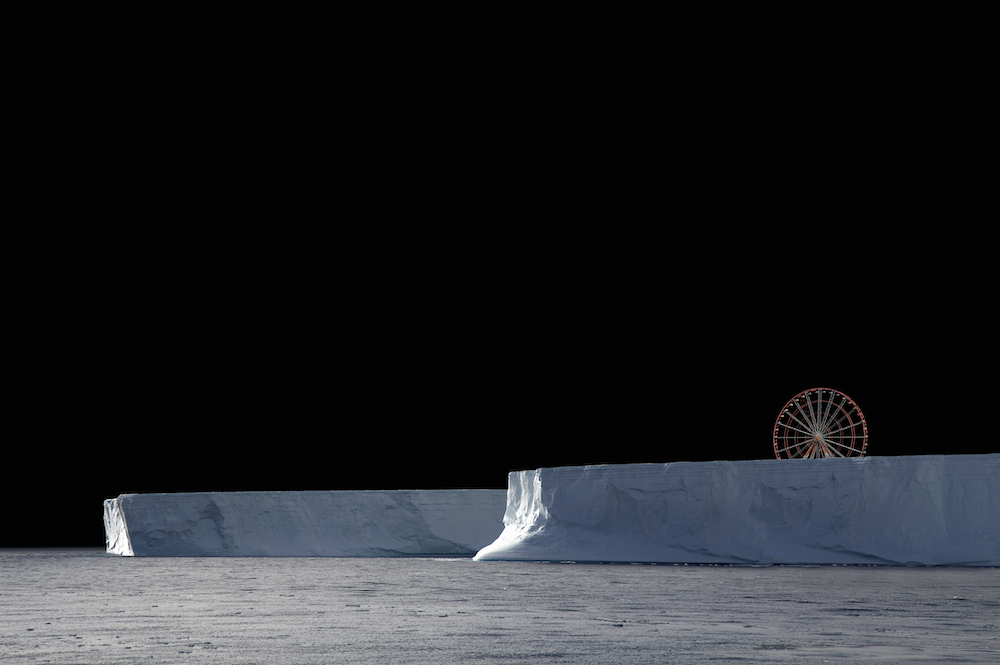Luciana Abait’s survey exhibition “On the Verge” features twenty works of various mediums including painting, photography, sculpture, video installation and an augmented reality. Each work is a wondrous landscape both magical and tragic.
The magic comes from the alchemy of color, light and mystery in each piece; the tragedy is climate catastrophe, and the nationalistic myths that have led us to this precipice.
At the exhibition entrance is the piece The Maps that Failed Us (2018-2022) which transforms crumpled, random paper and cardboard maps into a sculpture that illustrates the pointlessness of dividing lines on one singular space—this precarious earth.

Luciana Abait, The Maps That Failed Us, 2018-2022. Paper and cardboard, appr. 120 x 200 in. Courtesy of the artist and Laband Art Gallery.
In a side room a beautiful blue projection entitled Agua, spills out a 20-foot-tall waterfall of light and illusion, an immersive tribute to, and requiem for, an abundance of the life-giving force of water.
Made from a mix of pencil, pastel, and photocollage, Wheel (2019) is haunting and poignant. Here, an illuminated ferris wheel is positioned on glacial ice, revealing both the reckless disregard for nature that humans exhibit, and a surreal sense of having “fun while it lasted” by treating the planet as a brief carnival ride.
The vivid aquas and blue of visibly melting glacial ice in Buoy II (2019), depicts the inadequate human reaction to melting polar ice caps—placing a buoy in unfrozen waters.

Luciana Abait, Night, 2019, Photocollage on wood panel, 84 x 110 in. Courtesy of the artist and Laband Art Gallery.
The starry sky and Milky Way in Abait’s photocollage Night (2019) reveals the profound beauty of the heavens above a dark sea, ice flow and damaged planet. The rose and aquas of Day (2018) show the sun rising over a similarly lovely and sad watery landscape.
The titular photographic works On the Verge 1 and On the Verge 2 (both 2022), depict the arid desert landscape as an insightful blend of beauty and loss. Even more dire is Black Water (The Exquisite Edge of Precipice) (2022), where an ominous, pale aqua sky stands above red cavern walls and an inky deep.
We are reminded of water’s healing properties in an outdoor artificial reality installation, where an audible whoosh unleashes a fragile hope: perhaps it’s not too late for a flood of real action redeeming ourselves and our earth.


